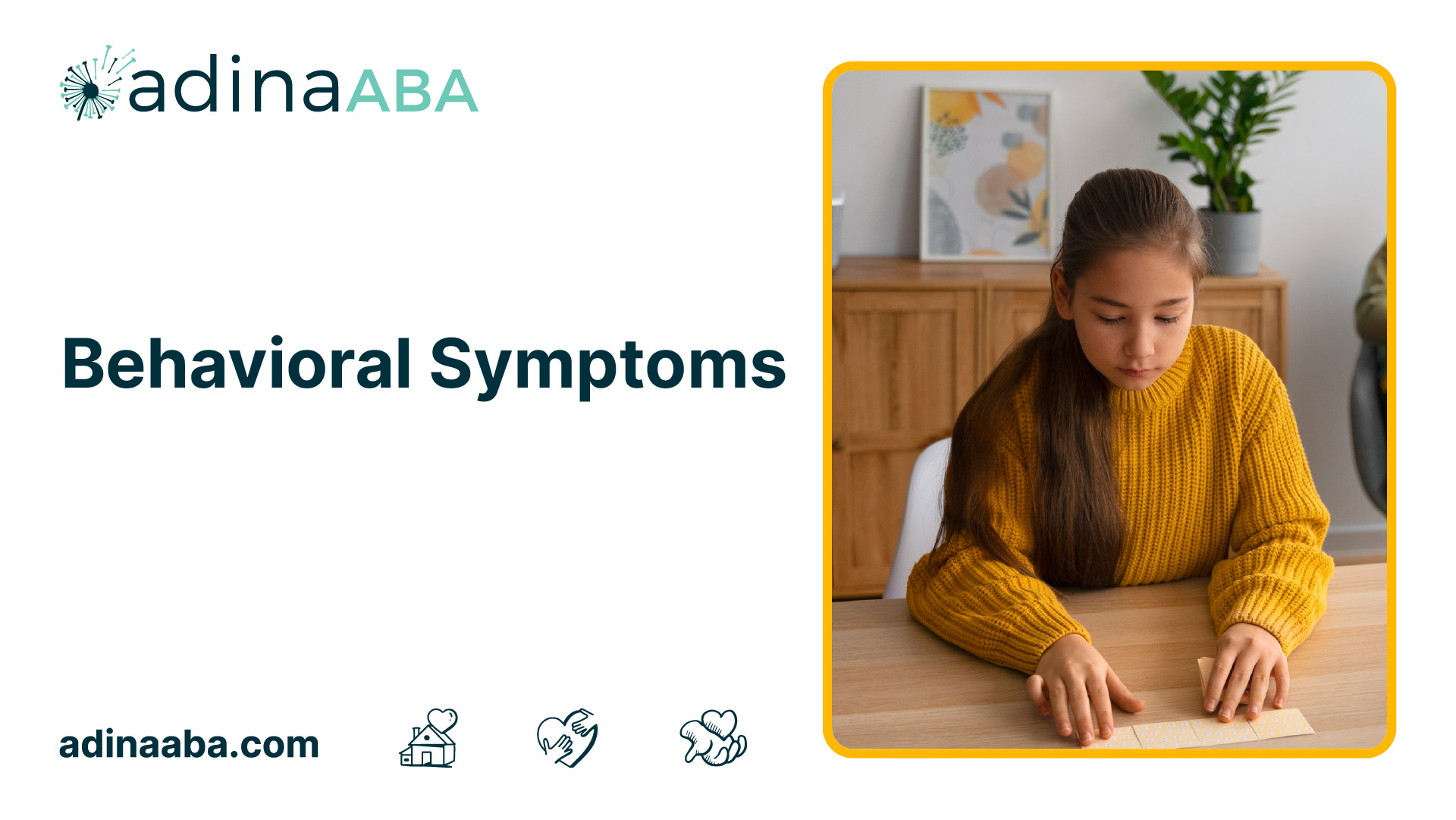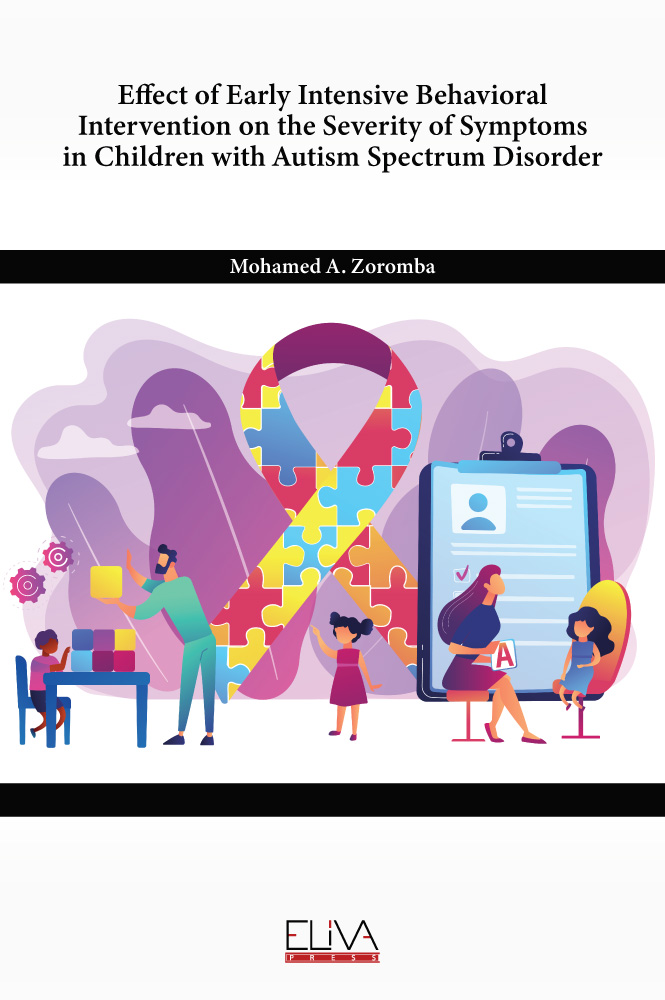Coping with hypersensory challenges with support from Autism Spectrum Therapies professionals
Coping with hypersensory challenges with support from Autism Spectrum Therapies professionals
Blog Article
Secret Signs and Symptoms to Recognize in Individuals With Behavioral Autism
When you come across a person with behavior autism, acknowledging essential signs and signs and symptoms is essential. Furthermore, sensory sensitivities can lead to overwhelming experiences.
Obstacles in Social Communications
When you engage with someone on the autism spectrum, you might observe they struggle with social signs and communication. These challenges can make social interactions really feel overwhelming for them.
When they do engage, they may talk concerning their rate of interests in great information without discovering if you're interested. Comprehending these challenges can aid you come close to interactions with compassion and patience, fostering an extra comfortable environment for both of you.
Problem With Verbal and Non-Verbal Communication

Non-verbal communication can be even more challenging. You might see a lack of eye call or limited use of motions, which can make interactions feel awkward. Facial expressions might not constantly align with the conversation, resulting in confusion regarding their sensations. Acknowledging these indicators is important, as it assists you better support and engage with people on the autism spectrum. By understanding their communication obstacles, you can foster a lot more meaningful connections and provide a more supportive atmosphere.
Repetitive Actions and Regimens
Communication difficulties frequently go along with other indicators of autism, such as repeated habits and a solid choice for routines. You might see that people with autism usually participate in specific, repetitive activities, like hand-flapping, shaking, or repeating expressions. These habits can offer convenience and a feeling of control in an usually overwhelming world.
When they adhere to a structured schedule,Routines are similarly essential; lots of individuals flourish. You may find that changes to these regimens can cause considerable distress. If they have an everyday routine of consuming breakfast at a particular time or complying with a specific route to college, any type of disruption can cause stress and anxiety.
Acknowledging these patterns aids you recognize their behavior and supply assistance. By accommodating their need for regular and allowing repeated activities, you can create a much more comfy setting that reduces their challenges.
Sensory Sensitivities

Common Sensory Triggers
Sensory level of sensitivities can considerably impact day-to-day life for individuals with autism, as certain stimuli often trigger overwhelming responses. Typical sensory triggers consist of loud sounds, brilliant lights, and strong scents. You might observe that abrupt sounds, like alarm systems or alarms, create anxiety or distress. Similarly, fluorescent lights in shops can feel harsh and uneasy. Appearances can additionally play a considerable function; rough fabrics or particular food structures might be intolerable for you. Furthermore, crowded locations can overwhelm your senses, making it hard to unwind or concentrate. Understanding these triggers can help you handle your setting much better. By being mindful of what affects you, you can take actions to decrease pain and enhance your everyday experiences.
Behavior Actions Discussed
Comprehending your behavior responses to sensory level of sensitivities is essential, as they frequently disclose exactly how you connect with the globe. You might notice that particular sounds, lights, or appearances overwhelm you, resulting in anxiousness or discomfort. When encountered with these stimuli, you may withdraw, cover your ears, or also respond aggressively. These actions aren't simply quirks; they're your method of managing overstimulation. You might also locate yourself looking for certain sensory experiences, like deep stress or silent environments, to aid ground on visit this web-site your own. Identifying these patterns helps you recognize your requirements far better and can lead just how you connect them to others. By acknowledging your sensory sensitivities, you can work towards creating an atmosphere that feels more workable and comfortable for you.
Coping Approaches Review
Identifying your sensory sensitivities is just the initial step; currently it's time to check out coping approaches that can assist you manage those experiences properly. Start by creating a sensory toolkit customized to your requirements. This can include noise-canceling headphones, fidget toys, or soothing scents. Developing an organized regimen can likewise provide predictability, reducing anxiety around sensory overload. When you feel overwhelmed, take breaks in a peaceful area to regroup. Practicing mindfulness techniques like deep breathing can assist ground you in the minute. Additionally, connect your requirements with those around you; having encouraging loved ones can make a significant distinction. Keep in mind, locating what works ideal for you might require time, so be open and patient to trying new approaches.
Limited Passions and Focus
While several individuals develop a variety of rate of interests, those with autism typically demonstrate limited passions and an intense focus on specific subjects. You may discover that a person with autism can invest hours diving right into their favorite topic, whether it's a specific type of train, a specific motion picture, or a clinical idea. This extreme emphasis isn't just a hobby; it can come to be a main part of their identity and social interactions.
You might discover that conversations focus on these interests, and they may have a hard time to engage in more comprehensive topics. For them, these focused rate of interests offer comfort and a sense of mastery. While it is necessary to urge expedition of brand-new subjects, valuing their passions is equally essential. By understanding and acknowledging these restricted passions, you can promote an encouraging setting where they really feel valued and recognized, permitting even more purposeful connections and interactions.
Emotional Guideline Problems
People with autism usually encounter difficulties in psychological regulation, which can be influenced by their extreme emphasis on specific rate of interests. You might observe that when a person is deeply taken part in a favored activity, they can experience strong feelings, whether exhilaration or stress. This strength often makes it difficult for them to change equipments or manage their sensations when things don't go as intended.

Variability in Developing Turning Points
When it comes to developmental milestones, you'll see that individuals with autism usually show a vast array of variability. You might see a youngster excel in language skills yet struggle with social interactions.
It's important to acknowledge that each person's trip is distinct. Some may establish intricate abilities early, just to face obstacles later. Others could take longer to attain basic landmarks but after that grow in particular locations. Observing check here these patterns can assist you comprehend their toughness and needs much better.
Regularly Asked Questions
Just How Is Autism Detected in Kid and Adults?
To identify autism in grownups and youngsters, experts review behavior, communication skills, and social communications. They typically make use of standardized examinations, meetings, and observations to figure out if an individual satisfies the criteria for autism spectrum condition.
Are There Different Kinds Of Autism Range Disorders?
Yes, there are different types of autism range conditions, including Asperger's disorder and prevalent developing disorder-not otherwise specified. Each kind varies in intensity and qualities, so comprehending these distinctions can help you far better support individuals with autism.
What Therapies Are Effective for People With Autism?
When thinking about effective therapies for individuals with autism, you'll find options like Applied Actions Analysis, speech therapy, and job-related therapy. Each technique can help enhance communication, social abilities, and day-to-day operating tailored to private demands.
Can People With Autism Lead Independent Lives?
Yes, individuals with autism can lead independent lives. With the best support, skills training, and sources, you can assist them establish self-sufficiency, take care of day-to-day tasks, and flourish in different environments, promoting their freedom.
Exactly How Can Households Assistance Liked Ones With Autism?
You can sustain your liked ones with autism by producing a structured atmosphere, encouraging their passions, exercising patience, fostering interaction, and promoting social abilities. Commemorate their achievements, despite just how little, and construct a helpful community.
Although many individuals on the autism spectrum can make use of and comprehend language, they often face substantial obstacles with both spoken and non-verbal communication. Identifying these indications is essential, as it assists you much better support and involve with individuals on the autism range. You may notice that people with autism typically engage in specific, repetitive activities, like hand-flapping, shaking, or repeating phrases.Sensory sensitivities can significantly influence daily life for individuals with autism, as specific stimulations usually activate frustrating responses.When it comes to developmental landmarks, you'll see that people with autism often show a large variety of irregularity.
Report this page